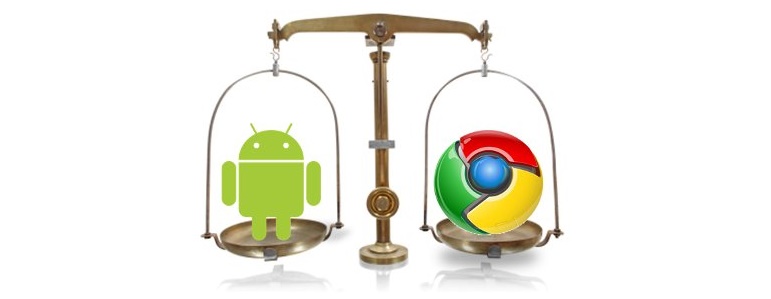Is Chrome Os Based On Android

According to a report by the Wall Street Journal, Google will merge its two operating systems (Os), Android and Chrome Bone, the preferred one being Android.
This report was followed by contradictory information from Vice President Hiroshi Lockheimer. He stated in the official web log that the Chrome Bone would still exist. However, he besides stated that the team was reworking the Chrome OS and figuring out how to bring Android apps into the Chrome Os.
The Wall Street Journal reported that Google will fold its Chrome Bone into the Android mobile OS past 2017. Google plans to harmonize their ecosystem, which already includes several types of Android-based devices like smartphones, tablets, infotainment systems, smart watches, and smart TVs. This will make it possible for Android developers to apace extend their apps to all platforms. In return, Google will be able to reach more customers with the Google Play app market and keep stride with the new multi-platform Windows 10 and Apple'southward App Store.
However, the reverse is quite possible too, and the Chrome OS would still be a separate project. Laptops are a diistinct class of devices with a user experience (UX) which greatly differs from that of smart devices equally they practice not have concrete keyboards. This is why Google developed Apps Runtime on Chrome (ARC) then that Android apps will be able to function on Chromebooks. In this example, the Chrome Bone will still be bachelor for the best Android practices, while the role of AVS might exist to coordinate communication between the teams in guild to implement worthwhile features in all of Google's products as presently as possible.
It seems like Google has both plan A and plan B, merely prefers to play it rubber rather than reveal too much information. This is no surprise. Both plans provide the same or similar UX simply not the same benefits, as the Chrome Os is considered to be more than secure. Moreover, conversion to Android means that developers will have to rewrite it then that it can starting time supporting laptops. This procedure will be inevitably accompanied by modest and major bugs on different devices, hot fixes, and so on, which are unlikely to aid Google win over new customers.
Abandoning the Chrome OS might raise concerns amongst both the Chrome OS and Android communities and decrease users' trust in all new Google devices. Nosotros observed something like when Microsoft abased Windows Phone 7 in favor of Windows Phone 8. Withal, in that case, new apps did non function on the old Os and gave ascension to the state of affairs when only the new platform had both new apps and updates.
However, in this case nosotros are optimistic. The Google team has learned this lesson very well. Hiroshi Lockheimer guarantees system auto-updates for at to the lowest degree the side by side five years, and then Chrome OS users are rubber. Moreover, now they are able to use their favorite Android apps on their laptops.
Once again, the introduction of ARC is adept news for Android developers, every bit it makes it possible to port native and cross-platform apps to Chromebooks and thus relieve time and money while offer a better UX. In other words, they gain from Google'south strategy anyhow.
Therefore, the best way is for Google to back up both strategies (even if the 2nd seems to exist less productive and/or unoptimized) and see how well the competitors will be doing.
Sources: Google Chrome Blog, Wall Street Journal
Is Chrome Os Based On Android,
Source: https://itechcraft.com/blog/news/chrome-vs-android/
Posted by: navarrohimed1979.blogspot.com


0 Response to "Is Chrome Os Based On Android"
Post a Comment